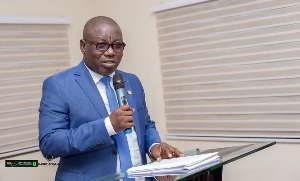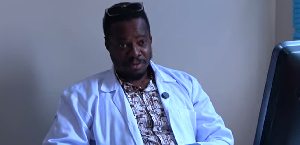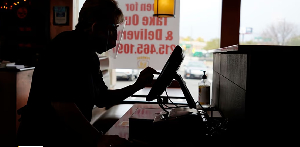Most Reverend Gregory Kpiebaya, Catholic Archbishop of Tamale, has attributed the economic retrogression being experienced by African countries to the failure of African leaders to pursue principles that promote progress.
"Africa, once called the Dark Continent, has become darker because basic principles such as the rule of law, respect for human rights, and concern for the common good are not the pre-occupation of the vast majority of African leaders," Archbishop Kpiebaya said in Tamale at the weekend.
He was speaking at the start of a two-day workshop organised by the Tamale Ecclesiastical Provincial Conference (TEPPCON) in conjunction with the Konrad Adenaurer Foundation (KAF), a non-governmental organisation, for Catholic district assembly members and Catholic aspirants to the district assembly.
The seminar, themed, the "Social teaching of the Catholic Church", was aimed at disabusing the minds of Catholics in the belief that politics is a dirty game and a "no-go" area for serious Christians.
Its main objective was to stimulate the interest of Catholics in political life, especially at the local level, to bring Christian values to bear on the country's political and public life so as to clean up its political culture.
The workshop therefore, sought to equip Catholics aspiring to become members of the district assemblies with the social teachings of the church to let them realise that they have a responsibility to get involved in politics in order to bridge the dichotomy between religious practices and Ghana's political and social culture.
Archbishop Kpiebaya said the African continent had been made darker by inter and intra ethnic conflicts, which have left millions dead, displaced or rendered homeless.
Widespread injustice, spearheaded by bribery and corruption in political and economic life has deepened poverty with nine out of 10 citizens in the Upper East Region living in poverty, whilst eight out of 10 and seven out of 10 people in the Upper West and Northern regions respectively also live in abject poverty.
Archbishop Kpiebaya said worsening the already bad situation is the HIV/AIDS pandemic sweeping across the African continent, the wanton destruction of the environment, the falling standards in education, health and morality and the rising crime wave.
He said it was ironical that whilst the slogan of Ghana's first President, Osagyefo Dr Kwame Nkrumah, at Ghana's independence was "seek ye first the political kingdom and everything else will be added unto you," experience has rather shown the opposite, with "everything else being taken from Africans."
Archbishop Kpiebaya was optimistic that in spite of the dismal situation of Ghana, and Africa as a whole, all is not yet lost, saying, "in the face of such realities, Catholic social teaching offers a whole gamut of principles and values for action." "This programme of Catholic civic education will prepare the way for the 'beautiful ones' to be born in our society to effect the needed change."
Madam Agnes Gandaa, Project Co-ordinator of TEPPCON, said respect for human rights, democracy, the rule of law, peace and overcoming under-development constitute some of the cardinal social issues that the church fights for in its bid to ensure social justice for all peoples.
Since these issues derive their expression from the political order of the day, it has become imperative for Christians to be at the helm of political affairs in order to Christianise politics, she said. Madam Gandaa said since politics is not a dirty game but it is the players who make it dirty, it follows that it is the quality of people involved in politics who determine the political culture of the day.
She said it was regrettable that a serious dichotomy existed between the country's religious beliefs and its political, social and economic culture, saying, "we hardly allow these areas of our lives to be influenced by the gospel of Jesus Christ and the social teaching of the church."
It was therefore, the aim of the organisers that at the end of the training workshop, participants would have realised how to transform their political and social lives to reflect the gospel values if ever they find themselves in active politics. Consequently, they would regard and use politics as one of the vehicles for social change in the light of the gospel, with they themselves as agents.
Madam Gandaa said whilst the interest of TEPPCON and KAF in supporting political education seminars for Catholics aspiring to contest the forthcoming district assembly elections was generally aimed at broadening the democratic culture already taking root in the country, experience has already shown religion could pave the way for sanity in politics.
She cited the examples of the 1996 and 2000 presidential and parliamentary elections where religious bodies played a key role in maintaining peace. Madam Gandaa said the social teachings of the church, which many Catholics remain ignorant about, are astonishing in their depth of analysis of global issues.
"They have the potential and practical capacity to bridge the contrasting differences between the ideological economic fronts represented by Marxist collectivism and capitalist individualism."
General News of Tuesday, 30 April 2002
Source: gna












